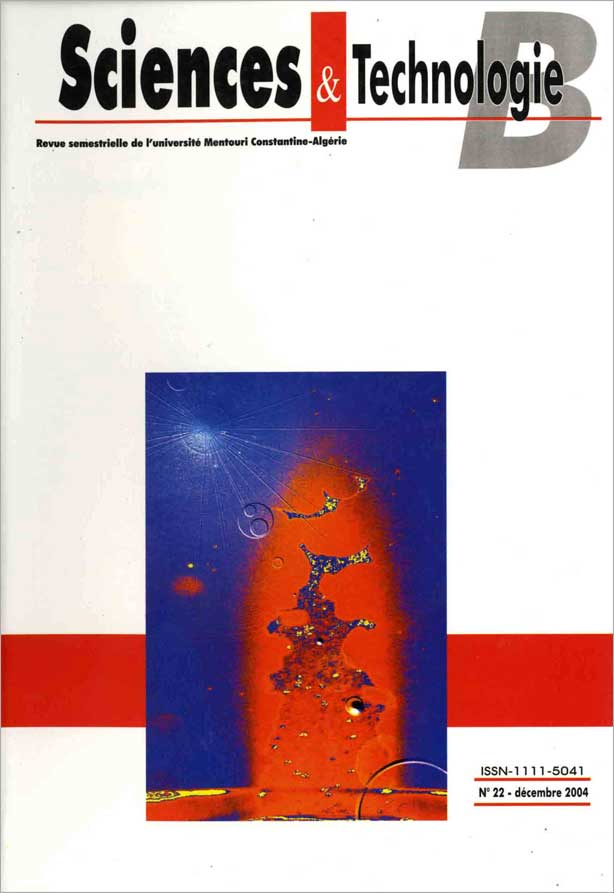THE PERFORMANCE OF DISCRETE WAVELET WITH CONVOLUTIONAL CODE IN LEO SATELLITE CONSTELLATION
Mots-clés :
Convolutional coder, discrete wavelet transform, Wavelet thresholdingRésumé
In this paper, we propose a new approach to solve the problem of the spectral occupation for the transmissions with high flow in satellites telecommunications systems, this occupation spectral is caused by the cohabitation with other emissions or services sharing the same band frequency, this approach is the association of discrete wavelet with convolutional code. The performance of this method are illustrated in a additive white Gaussian noise channel (AWGN).Références
- Wang W., Blostein S., "Video image transmission over mobile satellite channels", Signal processing image communication, 16, (2001), pp.531-540.
- Koudelka O., Maral G., Cruickshank H.S., Collard J., Network integration via MEO/LEO satellites- The cost 253 action, in EU’s initiatives in satellite communications-fixed and broadcast coll., IEE, May 9, (1997).
- Defever S., Brefort T., Streiner E., Bawin C., Zeint T., Lalanne P., High-speed internetworking by satellite, in cost 226 integrated space/Terrestrial Networks Final symp., Budapest, Hungary, May 10-12, (1995), pp. 246-266.
- Jones R.W., "Handbook on satellite communication", International Telecommunication Union, edition Wiley, (2002).
- Tzeng F.F., "Error protection for satellite broadcast of HDTV and conventional TV", proc. IEEE GLOBECOM ’93, vol.3, (1993), pp.1617-1621.
- Ficher S., Kudras S., Kuhn V., Kammeyer K.D., "Analyse of Diversity Effects for satellite System communication systems", accepted for in proceedings Globecom, San Antonio, USA, (2001).
- Kondoz A.M., "Digital Speech, Coding for low bit rate communication systems", John Wiley, Chichester, (1990).
- Lee L.H.C., "Convolutional Coding: Fundamentals and Applications", Artech House, Inc., (1997).
- Forney G.D., "The Viterbi algorithm", Proceedings of the IEEE, 61, (1973), pp. 268-278.
- Viterbi A.J., "Convolutional Codes and Their Performance in Communication Systems", IEEE Trans. Commun., vol. COM-19, Oct. (1971), pp. 751-772.
- Wicker S., "Error Control Systems for Digital Communication and Storage", Prentice-Hall, Englewood Cliffs, NJ, (1995).
- Rioul O. and Duhamel P., "Fast Algorithms for Discrete and Continuous Wavelet Transforms", IEEE Trans. Inform. Theory, vol. 38, (1992), pp. 569-586.
- Cincotti G., "Fiber Wavelet Filters", IEEE Journal of quantum electronics, Vol. 38, N°10, October (2002).
- Strang G. and Nguyen T., "Wavelets and Filter Banks", Wellesley: Wellesley-Cambridge Press, (1996).
- Heller J.A. and Jacobs I.M., "Viterbi decoding for satellite and space communication", IEEE Transactions on Communications Technology, October (1971), pp. 835–848.
- Burrus C.S., Gopinath R.A., and Guo H., "Introduction to Wavelets and Wavelet Transforms", Prentice-Hall, (1996).
- Shensa M.J., "The Discrete Wavelet Transform: Wedding the Trous and Mallat Algorithms", IEEE Trans. Signal Proc., vol. 40, pp. 2464-2482.
- Abry P. and Flandrin P., “On the Initialization of the Discrete Wavelet Transform Algorithm,” IEEE Sig. Proc. Lett., vol. 1, (1992); pp. 32-34, 1994.
- Moulin P., "Wavelet thresholding techniques for power spectrum estimation", IEEE Trans-actions on Signal Processing, 42, November (1994), pp. 3126-3136.
- Donoho D.L., "Denoising via soft thresholding", IEEE Transactions on Information Theory, 41, May (1995), pp. 613-627.
- Donoho D.L. and Johnstone I.M., "Ideal spatial adaptation via wavelet shrinkage", Biometrika, 81, (1994), pp. 425-455.
- Xia X.-G., Kuo C.-C.J., and Zhang Z., "Wavelet Coefficient Computation with Optimal Prefiltering", IEEE Trans. Signal Proc., vol. 42, (1994), pp. 2191-2197.
- Foerster J., Liebetreu J., "FEC Performance of Concatenated Reed-Solomon and Convolutional Coding with interleaving", IEEE 802.16 Broadband Wireless Access Working Group, (2000).
Téléchargements
Publié
Numéro
Rubrique
Licence
Les auteurs publiant dans cette revue acceptent les termes suivants :- Les auteurs détiennent le droit d'auteurs et accordent à la revue
le droit de première publication, avec l’ouvrage disponible simultanément [SPÉCIFIER LA PÉRIODE DE TEMPS] après publication, sous la licence Licence d’attribution Creative Commons qui permet à d'autres de partager l'ouvrage en en reconnaissant la paternité et la publication initiale dans cette revue. - Les auteurs peuvent conclure des ententes contractuelles additionnelles et séparées pour la diffusion non exclusive de la version imprimée de l'ouvrage par la revue (par ex., le dépôt institutionnel ou la publication dans un livre), accompagné d'une mention reconnaissant sa publication initiale dans cette revue.
- Les auteurs ont le droit et sont encouragés à publier leur ouvrage en ligne (par ex., dans un dépôt institutionnel ou sur le site Web d'une institution) avant et pendant le processus de soumission, car cela peut mener à des échanges fructueux ainsi qu'à un nombre plus important, plus rapidement, de références à l’ouvrage publié (Consulter The Effect of Open Access).

